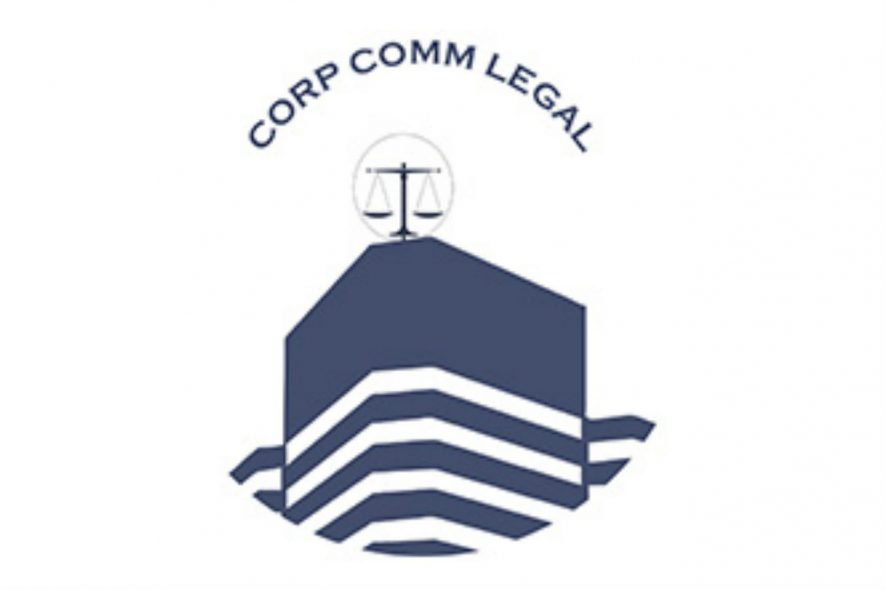In today’s digital world, the internet is probably the most intrusive and effective way to make yourself known and available to the global community. In the last decade or so, online advertising has become the easiest way for corporates to advertise their products and services. The internet’s ability to find, attract and target customers is unmatchable.
Keyword advertising is one of the main tools that a lot of companies have been using to expand their internet presence. This form of advertising allows the products of the companies to appear on the search results of the customer when they search a particular phrase on the search engines. This has been triggered by the help of the search engines like Google and Yahoo which have created keyword advertisement programs that allow the advertisers to purchase certain words or phrases that would lead to their product.
For e.g., if a person was opening a new NGO in Dehradun and wanted to advertise the NGO on Google, the first step would be to create an online advertisement for the NGO. Thereafter, the person would choose certain terms that would lead to the advertisement being shown on Google. The person might purchase those words to lay the framework for keyword advertising.
The problem that surrounds the increasing use of keyword advertising is that of trademark violations. This field though requiring a lot of attention is still highly unsettled due to lack of sufficient and clear law or judicial understanding. The principle reason for the same deficiency is that most cases of keyword advertising do not reach court and are settled by the parties outside it.
The problem arises when companies buy keywords that are trade marks of unrelated third parties or even their competitors. This is done to allow its product to be shown on the search engine when the customers search for its competitors’ marks. To put it into context for instance like in the first example, the person opening the new NGO purchases Child Rights as a keyword, it may show the NGO advertisement every time a person searched Child Rights and You (CRY). Now, this seems to be an excellent move by the advertisers because the established keyword CRY will garner more views than its newly established NGO’s keywords.
This practice of using another company’s name in advertisements is also known as piggybacking and is often practised by companies in disguise to manipulate customers. The general idea that exists in judicial decisions is that the advertisers can bring in action if there is a confusion caused among consumers. While analysing trade mark violations with respect to keyword advertisements, the courts have mostly held that the “likelihood of confusion” is not obvious. However, this being a grey area has attracted a lot of diverse opinions by intellectual property rights (IPR) experts. Different courts have given different judgments in this regard. The courts have mostly restrained from holding the search engines liable for allotting such keywords. However, a conclusive determination on the issue is still awaited. Thus, let us analyse the “likelihood of confusion” in keyword advertisements.
The Trade Marks Act, 1999 deals with the legal issues related to trade mark infringement in India. It is defined as an infringement of exclusive rights attaching to a trade mark without the authorisation of the trade mark owner or any licensee.[1] There are two types of remedies available to the owner of a trade mark for unauthorised use of its imitation by a third party. These remedies are an action for passing off in the case of an unregistered trade mark and an action for infringement in case of a registered trade mark. Moreover, there also exists a jurisdictional issue with regard to the competence of national courts to hear matters relating to keyword advertisements and the liability of search engines.
The essential function of trade mark law is to secure the real identity of any product. It is to provide a product with a secondary meaning which distinguishes it from other products. The “likelihood of confusion” is instrumental in determining whether a trade mark violation has taken place. This research is significant because there is no uniform standard with regard to the trade mark violations by the use of keyword advertisements. Therefore, the existing problem in relation to keyword advertisements is whether it has all the essentials of trade mark violations. Moreover, whether the search engines shall be liable for selling such keywords is another issue that exists today.
The issue of keyword advertising and the related trade mark infringement is still evolving in India as there is no binding decision on the same. The major reason for the lack of judicial authority over the same is that there are no particular laws and regulations that are governing keyword advertising. Development in the law on keyword trade mark infringement will enable the courts to analyse and rule on them effectively. However, with the increasing scope of online advertisements, the number of infringement suits is increasing worldwide. Most jurisdictions have refrained from ruling in favour of trade mark infringement or contributory infringement of search engines. As it was seen in Portakabin Ltd. v. Primakabin BV[2] decided by the European Court of Justice (ECJ) in 2010, the tide is still in the favour of advertisers in such disputes.
The ECJ ruled in favour of Primakabin’s use of trademarked keywords while stating that:
A specialist reseller of second-hand goods under another person’s trade mark cannot be prohibited from using that mark to advertise to the public its resale activities unless the resale of those other goods risks seriously damaging the image which the proprietor has succeeded in creating for its mark.[3]
With regard to the search engines liability, it was seen in Victor Andrew Wilson v. Yahoo! UK Ltd.[4] that search engines cannot be held liable for the use of trademarked advertisements. The UK Court had opined that the search engine was not using the trade mark of the claimant and it was being used by the people who were browsing the term “Mr Spicy”. Thus, similar to the stand in the Netherlands, the UK Courts have also ruled in favour of the advertisers. Moreover, in France, the Court has held that Google is merely performing a technical and passive role and thus it cannot be held liable[5]. As the search engine is not working for its own communication, but the communication of the customers, the liability shall only arise when Google is asked to take off the infringing keyword and it refrains from doing so.[6]
The ECJ has held that there are four main cumulative conditions that must be shown to prove trade mark infringement. In order for trade mark infringement to occur, all four components shall be satisfied:[7]
(i) the use must be in the course of trade;
(ii) the use must be made without the consent of the trade mark owner;
(iii) this use must relate to identical or similar products or services; and
(iv) the use must affect the functions of the mark.
Given the aforementioned grounds of trade mark infringement, keyword advertisements of the trade mark words may as well constitute trade mark infringement of the registered trade mark. Such tactics are invariably undertaken by rival companies involved in similar trade as of that of the trade mark owner. The rival companies use trademarked words as keywords without taking permission from the owner. This, therefore, is a dishonest practice and involves a use of symbol or mark that has been registered by another party. Further, most of the times, these companies produce products or provide services that are close substitutes of each other and thus keyword advertisements relate to identical and similar products and services.
Another question that merits an answer is whether the use of such keywords amount to loss to the owner of the trade mark. It has been argued that given the level of internet literacy, an average internet user does not know the difference between search results and advertisements and it is likely that a user will go to a link of other advertisers mistaking it to be the trademarked products advertisement. However, this argument does not stand given the increasing scope of online advertisements and online shopping. The internet has become the biggest platform for the exchange of goods and services. A lot of customers browse for particular products in the internet and are confused due to the advertisements of the rival companies. Since, it is the first advertisement that appears on the search result, more often than not, the customers end up landing on their websites.
It must be noted here that mostly, the new rival brands are trying to use the keywords of renowned trade marks to market their products are producing similar products or services. As these products or services are close substitutes of each other, the customers might be swayed to purchase the new companies’ goods or services as the newly marketed products are mostly cheaper in the market. Further, the customers become aware of the existence of such a rival brand and therefore the exclusivity of the trade mark owner does not remain the same and they may face substantial dip in their sales and profits. The initial confusion affects the economic gains of trade mark registration.
We conclude by saying that trade mark violation of trademarked keywords constitutes an infringement of trade mark by the rival advertiser. However, with regard to the liability of search engines, it shall depend upon the recognition of the trade mark. If it is too widely renowned trade mark for instance “Coke”, then the search engines should be held liable for putting it in the suggestion box for keywords. Sooner or later, such matters may start landing before appropriate courts for redressal and the uncertainty over this issue may then be settled by providing a conclusive determination.
[1] Dr B.L. Wadhwa, Law relating to Intellectual Property Rights, 4 (Universal Law Publication Co), 303-305, (2010).
[2] Case C-558/08, order dated 8-7-2010 : ECLI:EU:C:2010:416.
[3] Portakabin Ltd. v. Primakabin BV, Case C-558/08, order dated 8-7-2010 : ECLI:EU:C:2010:416.
[4] 2008 EWHC 361 (Ch).
[5] Google France SARL v. Louis Vuitton Malletier SA, Case C-236/08, order dated 23-3-2010 : ECLI:EU:C:2010:159,.
[6] Ibid.
[7] Ibid.







